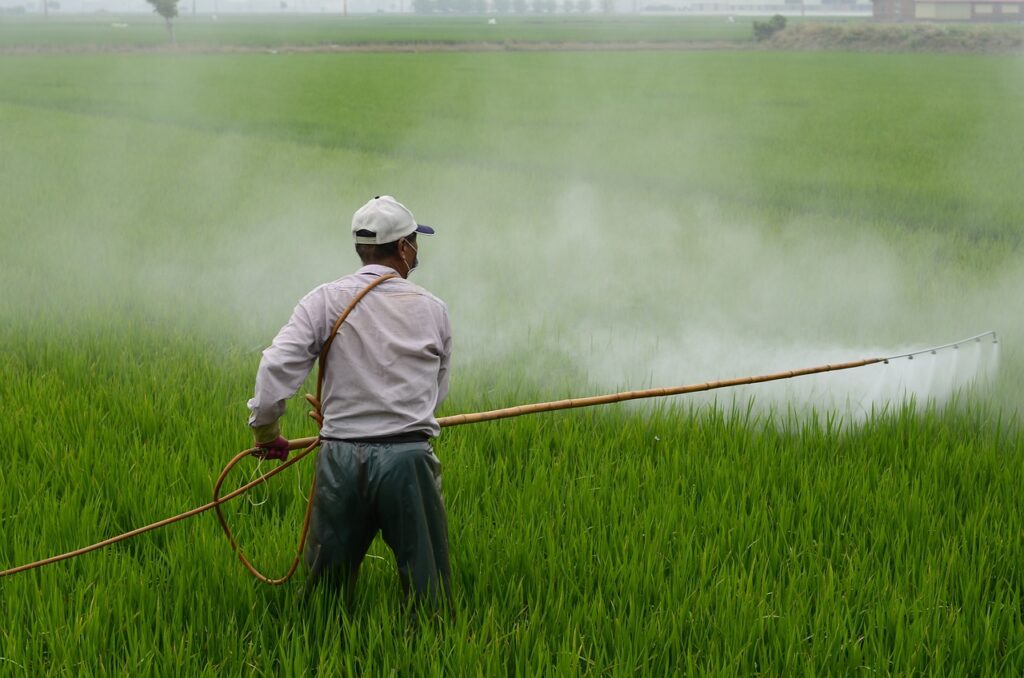
Have you heard of the “Dirty Dozen” list? It’s a list of produce that are most contaminated with pesticides, as determined by the Environmental Working Group (EWG). The EWG is a nonprofit organization that conducts research and advocacy on environmental issues, including the impact of pesticides on human health.
The “Dirty Dozen” list includes six fruits and six vegetables that have been found to have the highest levels of pesticide residue. These include strawberries, spinach, kale, nectarines, apples, grapes, peaches, cherries, pears, tomatoes, celery, and potatoes.
So, why should you be concerned about these items on the “Dirty Dozen” list? Pesticides are chemicals that are used to kill pests and protect crops, but they can also be harmful to humans. Exposure to pesticides has been linked to a variety of health problems, including cancer, reproductive problems, and developmental issues in children.
Let’s take a closer look at some of the items on the “Dirty Dozen” list:
Dirty Dozen: Why you should be concerned about strawberries?
Strawberries are one of the most popular fruits in the world, but they are also one of the most contaminated with pesticides. In fact, the EWG found that nearly all strawberries tested contained pesticide residues. This is particularly concerning because strawberries are often eaten raw, which means that any pesticide residue on the surface of the fruit can be ingested directly.
Dirty Dozen: Alternatives for avoiding spinach
Spinach is another item on the “Dirty Dozen” list that is commonly eaten raw. Unfortunately, spinach has also been found to have high levels of pesticide residue. If you’re looking for an alternative to spinach, consider trying other leafy greens like kale or collard greens.
Tips for reducing your exposure to pesticides
So, what can you do to reduce your risk of exposure to pesticides? Here are a few tips:
- Choose organic produce whenever possible. Organic produce is grown without the use of synthetic pesticides, so it is a good option if you’re concerned about pesticide exposure.
- Wash your produce thoroughly before eating it. This can help remove some of the pesticide residue on the surface of the fruit or vegetable.
- Peel your produce if possible. Pesticides tend to accumulate on the skin of fruits and vegetables, so peeling them can help reduce your exposure.
- Avoid foods that are known to be highly contaminated with pesticides. This includes items on the “Dirty Dozen” list as well as other foods that have been found to have high levels of pesticide residue.
In conclusion, the “Dirty Dozen” list is an important tool for consumers who want to reduce their exposure to pesticides. By choosing organic produce, washing your produce thoroughly, and avoiding foods that are known to be highly contaminated, you can take steps to protect your health and the health of your family.
FAQs: Dirty Dozen
Is it necessary to buy all organic produce to avoid pesticide exposure?
While organic produce is grown without the use of synthetic pesticides, it may not be necessary to buy all organic produce to avoid pesticide exposure. The EWG’s “Dirty Dozen” list can be a useful tool for identifying which produce items are most contaminated with pesticides and should be prioritized for organic purchase. Additionally, washing produce thoroughly and peeling if possible can help reduce exposure to pesticides.
Is washing produce enough to remove pesticide residue?
Washing produce can help remove some of the pesticide residues on the surface of the fruit or vegetable, but it may not remove all of it. Some pesticides can penetrate the skin of the produce, making them harder to remove through washing. Peeling the produce can help reduce exposure, but this may not be practical or desirable for all fruits and vegetables.
What are some of the health risks associated with pesticide exposure?
Exposure to pesticides has been linked to various health problems, including cancer, reproductive problems, and developmental issues in children. Some pesticides are known to be carcinogenic, meaning they can cause cancer. Others can disrupt hormones and affect fertility. Children are particularly vulnerable to the effects of pesticides because their bodies are still developing.
Are pesticides used in all types of farming?
Pesticides are commonly used in conventional farming to protect crops from pests and diseases. However, not all farmers use pesticides. Organic farming, for example, prohibits the use of synthetic pesticides and instead relies on natural methods of pest control. Additionally, some farmers may use integrated pest management (IPM) techniques, which involve using a combination of methods to control pests, including biological control and crop rotation.
